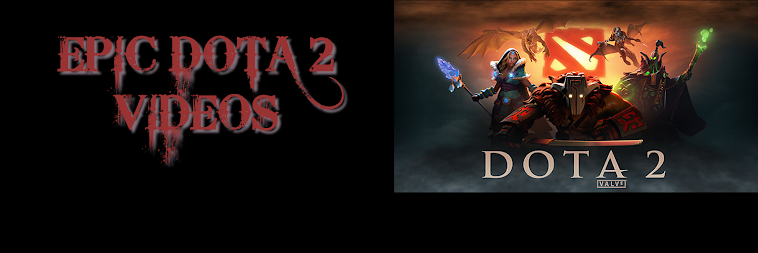By this point, Dota 2 should need no introduction. Valve’s most popular game now attracts10 million players every month, and this past weekend it became the first Steam title to surpass the milestone of having over a million concurrent users. Just as it reaches this new peak in popularity, however, Dota 2 is hitting a new low with its most ardent fans as server issues have plagued Valve’s introduction of the New Bloom Festival update. But server issues come and go; what's much worse is the addition of a new Year Beast Brawl game mode that lets players purchase a competitive advantage in the game.
 One of the sacrosanct principles of Dota 2 is that the whole game is free to play. Unlike some mobile games that are free to download but then force players into making in-app purchases to progress, a player can experience the full length and breadth of Dota without spending a dime. What’s problematic about the new game mode — even though it’s just a temporary one to mark celebrations of the Chinese New Year — is that buying trinkets outside the game can now have a real and pronounced effect on the competitive balance inside it. In other words, the free-to-play game now has a pay-to-win element.
One of the sacrosanct principles of Dota 2 is that the whole game is free to play. Unlike some mobile games that are free to download but then force players into making in-app purchases to progress, a player can experience the full length and breadth of Dota without spending a dime. What’s problematic about the new game mode — even though it’s just a temporary one to mark celebrations of the Chinese New Year — is that buying trinkets outside the game can now have a real and pronounced effect on the competitive balance inside it. In other words, the free-to-play game now has a pay-to-win element.
I am not happy about this.
In 2014, Valve marked the Chinese New Year with the addition of what was essentially a dragon-slaying mini game. Players teamed up in groups of five and tried to defeat an unfathomably large and powerful Year Beast. This time around, the Year Beasts are smaller and less overwhelming, and they’ve been inserted into the basic 5-on-5 game mode. A Year Beast Brawl sees each team pick up a monster as an ally, and its abilities can be upgraded with ability points. Those points are gained by winning Brawls or — and this is where things turn sour — through purchases of a special $34.99 Arcane Bundle. Points can also be bought in batches of 1,000 for $2.49 or 2,400 for $4.99.
What happens when one team spends lavishly on its Year Beast and the other doesn’t? Terrible, unbalanced gameplay. Last night I "won" a 12-minute game of Dota where my allies escorted our seriously beefed-up creature down one lane, sieging and destroying all of the enemy towers in rapid succession. Even the most lopsided game of regular Dota takes at least 20 minutes before heroes are powerful enough to start wrecking architecture, but a Year Beast with enough financial backing can obliterate the opposition in half the time.
I don’t think anybody plays Dota 2 just to win. The thrill of this game comes from competing against others in an incredibly complex, yet wonderfully balanced contest. Sure, Dota has a litany of small gameplay quirks, but they are available for everyone to exploit and the playing field is even for all. The first time a Year Beast called down lightning to smite me from above, I lost that sense of fairness. His owner didn’t outsmart or outmaneuver me. He outspent me.
Dota 2 is like The Sims in that it makes most of the revenue for its publisher through the sale of cosmetic augmentations for your character and other optional extras. Unlike The Sims, however, Dota has never made the free player feel punished for not spending. Now that Valve is selling vouchers that can be turned into in-game steroids by the willing consumer, that important distinction for Dota is under threat. Valve appears comfortable with letting people buy success, and what’s worse, it’s aggressively pushing every player into it.
The New Bloom Festival has taken over my loading screen and is the first thing I see once inside Dota’s matchmaking menu. Year Beast Brawls occur at random times during the day, but when they’re active, I can’t play a regular unranked match that doesn’t include them — so even though it’s an additive game mode, it actually prevents me from finding the game I wish to play.
Until now, Valve has been exemplary in the way it’s balanced commercial considerations with an inclusive experience that doesn’t leave anyone out. This is how a 15-year-old Pakistani kid by the name of Sumail Syed can become a Dota 2 champion and collect his share of a $1 million team prize. An even playing field is also the basis for Valve’s self-produced Dota documentary, which is not accidentally titled Free To Play.
A SMALL STEP IN THE WRONG DIRECTION IS STILL A BAD MOVE
Read more: http://www.theverge.com/2015/2/16/8045369/valve-dota-2-in-game-augmentation-pay-to-win
Related article: Dota 2 Singapore Players, Who’s the Best ?

No comments:
Post a Comment